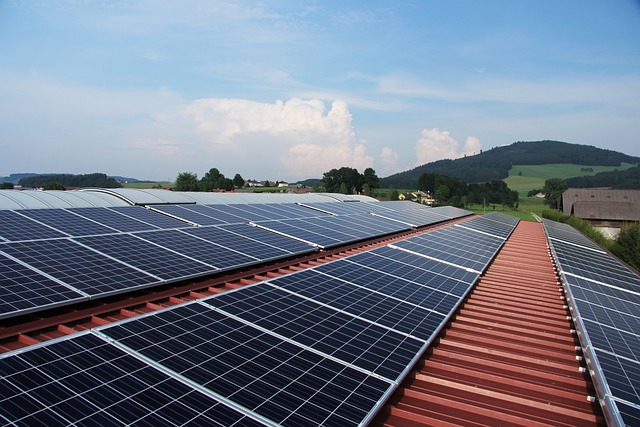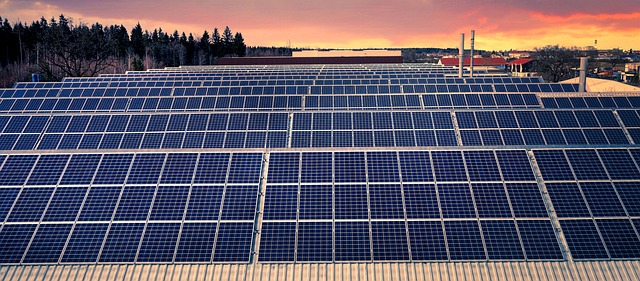Solar energy is a key renewable resource that leverages sunlight to generate clean electricity, significantly reducing reliance on fossil fuels and their associated greenhouse gas emissions. Its adoption addresses environmental concerns by eliminating the pollutants typically released during the lifecycle of conventional energy sources like coal and natural gas. The scalability, affordability, and sustainability of solar power position it as a central element in combating climate change and transitioning towards a more resilient and environmentally friendly energy future. Additionally, solar energy contributes to better air quality by decreasing the emissions that lead to air pollution. It also conserves natural resources, lessens water usage in energy production, and supports biodiversity preservation. The long-term environmental advantages of solar energy infrastructure, coupled with its potential to improve public health, underscore its importance as a cornerstone for sustainable power generation on a global scale.
7 Best Environmental Benefits of Solar Power: Harnessing the power of the sun offers a multitude of environmental advantages, from cutting greenhouse gas emissions to preserving natural resources. This article delves into the sustainable and eco-friendly aspects of solar energy, highlighting its role in promoting clean air, decentralizing power generation, and encouraging biodiversity. We explore the lifecycle of solar panels, including their recycling and energy payback, which underscore their place as a cornerstone for a greener future. Discover how solar power contributes to conservation and positively impacts ecosystems, making it a pivotal element in our transition towards sustainable living.
- Harnessing the Sun: How Solar Energy Reduces Greenhouse Gas Emissions
- Clean Air Through Clean Power: The Role of Solar Energy in Mitigating Air Pollution
- Sustainable Power for a Greener Future: The Lasting Environmental Impact of Solar Energy
- Conservation of Natural Resources with the Use of Solar Power
Harnessing the Sun: How Solar Energy Reduces Greenhouse Gas Emissions

Solar energy harnesses the vast and clean power of the sun, transforming it into electricity that can power homes, businesses, and various applications. By leveraging solar photovoltaic (PV) panels, individuals and entities can significantly reduce their reliance on fossil fuels, which are a major source of greenhouse gas emissions. The process of generating solar energy emits no direct pollutants or greenhouse gases throughout its lifecycle, from production to installation and operation. This contrasts sharply with conventional power sources such as coal, natural gas, and oil, which are associated with substantial greenhouse gas emissions that contribute to climate change.
Moreover, the integration of solar energy into the global energy mix serves as a potent tool in the fight against global warming. Solar panels effectively capture and convert sunlight into usable power, thereby lessening the demand for fossil fuels. This shift away from non-renewable energy sources not only conserves the Earth’s finite resources but also mitigates the environmental impact of greenhouse gas emissions that trap heat in the atmosphere, leading to climate change effects like rising temperatures and extreme weather events. The widespread adoption of solar energy is crucial in this regard, as it represents a clean, sustainable, and increasingly cost-effective alternative to conventional energy sources.
Clean Air Through Clean Power: The Role of Solar Energy in Mitigating Air Pollution

Solar energy stands as a pivotal solution in combating air pollution by providing clean power that significantly reduces emissions from traditional fossil fuel-based energy sources. The generation of solar electricity emits no direct pollutants such as nitrogen oxides, sulfur dioxide, or particulate matter, which are commonly associated with conventional power plants and vehicular traffic. By harnessing the sun’s abundant energy, solar installations across the globe contribute to cleaner air by eliminating the combustion processes that often result in harmful airborne contaminants. Furthermore, integrating solar energy into our energy mix not only lessens the burden on existing power grids but also diminishes the environmental footprint of energy generation. As the adoption of solar energy continues to grow, so does its potential to improve air quality and public health outcomes by mitigating the effects of air pollution, making it a crucial element in the transition towards sustainable living.
Sustainable Power for a Greener Future: The Lasting Environmental Impact of Solar Energy

Solar energy harnesses the power of the sun, a clean and inexhaustible resource that offers a sustainable alternative to fossil fuels. By leveraging solar panels to convert sunlight into electricity, this renewable source significantly reduces reliance on conventional energy sources that contribute to greenhouse gas emissions and environmental degradation. The deployment of solar energy not only lessens the carbon footprint but also minimizes pollution, including air and water contamination, which are byproducts of traditional power generation methods.
The long-term environmental benefits of solar energy are profound. Solar installations, from residential rooftops to large-scale solar farms, contribute to a reduction in atmospheric emissions that drive climate change. Additionally, the manufacturing process of solar panels is increasingly becoming more sustainable, with manufacturers striving to use recyclable materials and efficient production methods that limit environmental impact. The longevity of solar energy systems also means that once installed, they can provide clean power for decades, contributing to a greener future and a healthier planet for generations to come.
Conservation of Natural Resources with the Use of Solar Power

Solar energy harnesses the power of the sun to generate electricity, offering a sustainable and renewable alternative to fossil fuels. By leveraging this clean energy source, we significantly reduce the depletion of finite natural resources such as coal, oil, and natural gas. The use of solar panels for power generation conserves these resources by decreasing the demand for extraction and mining activities, which often disrupt ecosystems and lead to habitat destruction. This conservation is not only beneficial for the environment but also ensures that these resources remain available for future generations. Moreover, solar energy systems have a minimal reliance on water, contrasting with traditional power plants that require vast amounts of water for cooling during operation. By conserving natural resources and reducing water usage, solar energy contributes to a more sustainable and resilient energy infrastructure. The transition towards solar energy not only mitigates the environmental impact of resource extraction but also promotes the preservation of biodiversity and the integrity of terrestrial and aquatic ecosystems.
solar energy stands as a pivotal solution in mitigating environmental challenges. Its ability to drastically reduce greenhouse gas emissions, combat air pollution, and conserve natural resources underscores its role in fostering a sustainable future. The sevenfold benefits of solar power outlined in this article—from harnessing the sun’s energy to the long-term environmental advantages it offers—highlight the importance of integrating this clean, renewable resource into our global energy matrix. By adopting solar energy, we can collectively safeguard our planet for future generations, ensuring a greener and more sustainable world.
